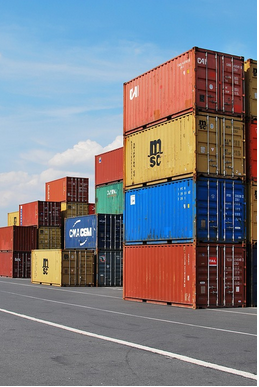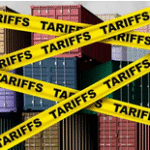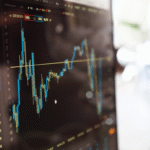Conflicting comments from the US and China over their trade negotiations have added a large dose of uncertainty to the trade environment. These inconsistencies can create some kind of instability in the world economy.
US-China Tariff Negotiations, Divergent Narratives: Who Is Right? As Global Trade Concerns Loom
Writing on Twitter, President Donald Trump taking with local time indicated that the United States and China tariff talks was going on smooth in the coming days. The comment was made Friday as Beijing denied that such talks were under way. The exchange underscores the uncertainty remaining over world trade, especially with America and China Tariffs are the topic of the day in US trade. What China does in response to US tariff policies play a pivotal role in global trade dynamics. US-China trade negotiations lack clarity — the impact is economic malaise in global markets. A rise in tariffs in US and China against each other can destabilize world trade. This process of US tariff proposals interacting with China’s reactions is probably one of the most important monitoring exercises in globalization today. Today, the uneven hand within global trade relationships is overscored.
Trump told TIME that discussions were underway, and that he had heard from Chinese President Xi Jinping, a point he repeated to reporters. But China’s foreign ministry rejected those claims, declaring that “China and the US are NOT having any consultation or negotiation on #tariffs,” also urging the US to “stop creating confusion” about global trade. The global trade impacts of the US tariff policy is being tracked. Tariff positions of both the US and China are steering the global trade process. But with no confirmed US-China negotiations due to the absence of new trade data among other factors, the economic uncertainty is still dragging on global trade.
On Air Force One, Trump told reporters that “there’s the possibility that you do use tariffs and the open markets for our products in China is a positive,” adding that such markets would also need to be opened for US products. Although his remarks cast further doubt over just how far China would be willing to go for that kind of openness, the comments also clouded the US-China trade outlook and its spillovers on global trade. Whether and to what extent tariffs have a role in the future of US-China trade and trade overall, is still in great debate. The US-China trade relationship has ripple effects for global trade through economic uncertainty, he said. International trade community is looking for clarity on US tariff approach towards China.
Then, on July 16, China Foreign Minister Wang Yi confirmed that Beijing would follow the international rules unconditionally imposed by US tariffs, and he noted that China also wanted the rest of the world to follow suit. In his statement, he expressed concerns over “bullying pressure and coercive transactions” and “trade wars” hints that international trade will be volatile in the light of unilateral acts and militarization. Tariffs that the US imposes, and retaliatory measures taken by China, can have spillover effects given the interrelatedness of global trade. The US-China trade dispute has left an air of economic uncertainty that permeates global trade participants.
Global Economic Certainty Affected by U.S. Tariff Policy and Its Broad Impact
But these dueling stories add to the uncertainty the US tariff regime already creates over trade negotiations with China. This creates a lot of uncertainty not only for bilateral trade with China but also for more countries trying to respond to import taxes brought on by the US. US tariff policy is far from predictable, which adds massively to uncertainty in economy across the world. Fact: Firms across the world are struggling to anticipate the future course of US trade actions and their effects on world trade. The absence of a coherent US tariff policy jeopardizes planning and investment and contributes to economic uncertainty. Unilateral actions by the US to impose tariffs are straining global trade relations. Long-term future path of US tariff policy continues to be an important driver of economic uncertainty in the world.
Trump’s negotiators have even reportedly been negotiating with foreign officials during the International Monetary Fund and World Bank Group Spring meetings. Even as US officials described the consensus as nearly complete, many counterparts stressed more caution, reflecting the uncertainty over broader economic growth, and how trade deal impacts flows seeking a global economy. Because uncertainties created by the US tariff regime is the focus of the global financial community on risk evaluation. The meetings underscored the pressing need for risk mitigation against the economic uncertainty triggered by the US tariff policy.
Irish Finance Minister Paschal Donohoe expressed this common concern saying trade uncertainty is having a considerable impact worldwide on jobs, growth and living standards. There is plenty of uncertainty outside the U.S. and it needs to be reduced at this stage of the game, he said, noting that U.S. trade actions affect the entire world. In a global economy that is highly interconnected, tariffs and trade disputes can quickly spread uncertainty throughout large areas of the world.
Potential Portside De-escalation Amid Global Trade Decoupling by Tariff
While a level of uncertainty remains over baseline agreements to prevent a further scaling-up of the tariff environment, there have been tentative signs that the US-China trade war might be easing, which would provide a modicum of relief to global trade. News that China had exempted some US imports from its tariffs and a list of other products being considered for exemption circulated as investors hoped for a thawing of trade tensions that have added to the economic uncertainty. Global trade, which can benefit from more certainty around economic issues, looks more favorably towards the US-China trade war on any sign of de-escalation.
And the Trump administration in recent weeks has hinted it might soften its approach toward China, Secretary Bessent saying the current paradigm was unsustainable, creating economic uncertainty. President Trump announcing that he is close to a Japan trade deal may be a preliminary sign for other bilateral trade deals, and encouraging signs with respect to stabilizing global trade and lessening economic uncertainty. Even so, these negotiations are so complex that economic certainty appears far off.
And President Trump’s announcement of many upcoming trade deals, and no new detail, only adds uncertainty to already uncertain global trade and, with it, a measure of economic uncertainty. Since a high level of tariffs in the future would be “a complete victory,” he seems to be saying, they can expect to live with tariffs for years to come, which means prolonged economic uncertainty. There is considerable debate, though, about the long-term effects of US tariff policy on global trade and economic certainty.
Americans For Limited Government: Most economists have cautioned that the US tariff barriers are almost certain to be America penalty, raising the price of goods paid by US consumers, and the risk of recession, both of which create uncertainty in the global economy. Some of that uncertainty is reflected in the behavior of US stocks during the entirety of the president’s political career, immured behind foreign indices since the president returned to office, and the sagging US dollar. Stock markets and currency are trading signals of global trade uncertainty.
Some amounts of European and Asian stocks are showing green and US dollar has recovered a bit, perhaps signaling some cautious optimism about expected abatement of US-China trade tensions and reduction of economic uncertainty affecting global trade to some extent. But the threat of continued US tariff policy over hang on broader global trade remains in place.
The overall climate of economic uncertainty in world trade is also aggravated by the broad tariffs imposed by the U.S. on other imports and higher duties on some sectors, in addition to the country-specific tariffs. Adding to the uncertainty of the world economic outlook is the potential for more tariffs directed at specific industries.
US tariff policies were the top talking-point at the IMF meetings as fears mounted over their potential assault on global economic certainty. Preliminary negotiations with Switzerland and South Korea were characterized as encouraging, but real development with different countries is sluggish, stressing the perseverance of economic uncertainty in global commerce. Tariffs and uncertainty were the themes of the last 3 years and the IMF chief warned these trade tensions could majorly weigh on global growth.
Other Key Insights
Tariffs by one nation led to the rise of Tariff by another one to balance the most directly benefiting to tariffed country, with the entangled global supply chains, national tariffs make economic uncertainty on all sides. Given the dependency on international trade for economic growth the sound nature of trade policies is imperative to ensure economic certainty. A disruption in trade, whether it be between the US and China (or any other countries for that matter) creates more volatility and uncertainty in economies. The current uncertainty surrounding US tariff policies make it difficult for businesses operating internationally to make investment decisions: after all, in order to invest their capital wisely, companies need to have a clear picture of how trade will be conducted across borders. The risk of retaliatory tariffs also increases economic uncertainty and may trigger trade wars that harm global growth. Institutions such as the IMF and the World Trade Organization have an important function in monitoring and trying to counter the economic uncertainty associated with trade wars.






